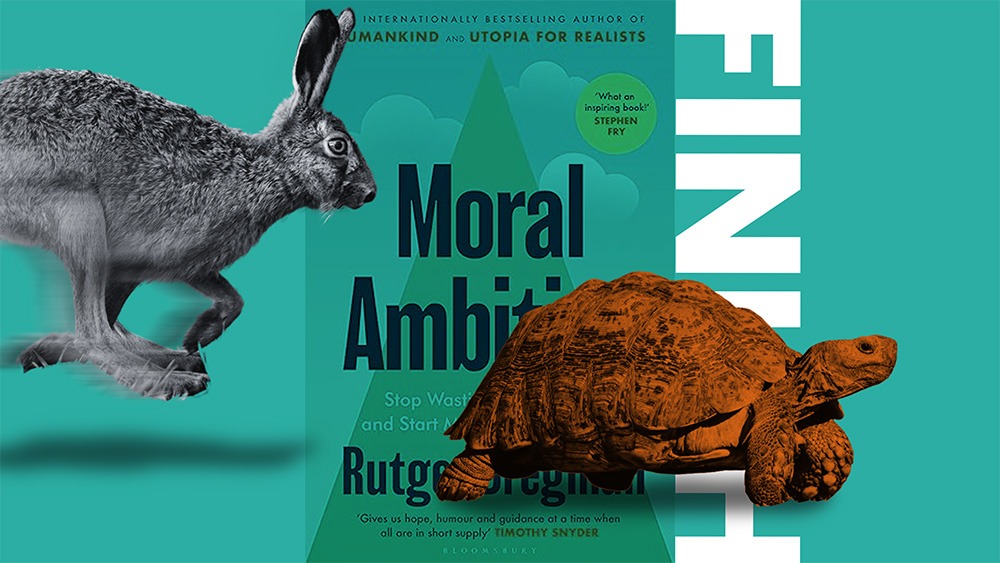
Is it too late to make a positive impact?
Over the last 12 months I have devoured a great number of books and research papers on the topics of doughnut economics, system thinking, sustainable marketing, brand strategy, and similar topics. It’s all part of my continuing professional development.
Most recently, I’ve just finished reading Rutger Bregman‘s latest book ‘Moral Ambition: Stop Wasting your talent and start making a difference’ which now bears hundreds of scrawled underlining, that many a bibliophile and librarian would find sacrilegious. But this is not a book of lazy moralising or lazy conventional wisdom. It is in fact, a practical guide to idealism, guided by reason, balanced research and engaging case studies.
Bregman provides insightful historical evidence of how past radical or progressive thinking has become today’s norm; even though such changes took decades and often centuries to seep through collective consciousness and influence political will. He reveals to us the unsung heroes in history that instigated such transitions, heroes who were often everyday people, risking reputation and in some cases their lives, to help shape the world of today.
That said, he also questions what needs to be done to ensure the survival of the human race? What are today’s challenges and what changes we must make to have any chance of leaving behind a better world for future generations?
Today’s world is far from perfect. We’re sadly witnessing a resurgence in right-wing views, systemic racism, genocide, wars, sharp increases in poverty, poor mental and physical health. The list goes on.
As an individual with a personal interest in the interconnectedness between environmental, social and political issues I find myself challenged. How can I make a positive impact using my experience, skills and resourcefulness? Am I too late, too old, to make a positive impact?
What I am certain of is this, sitting on the sofa becoming irate at another Netflix or David Attenborough documentary, isn’t going to change a thing. Awareness is not action. And inaction doesn’t let me off the hook either.
We all know when something fundamentally isn’t right. There’s an inherent moral compass in every person, regardless of their life experience, education or social background. In business, doing the right thing may necessitate an unwelcome short-term cost for a longer term environmental objective, such as an increase in consumer prices for organic foods, as Guy Singh-Watson at Riverford testifies in his latest Wicked Leaks post ‘The cost of doing the right thing’.
Brandpurpose, a company-of-one with a hybrid workforce of many talented people, was set up with a desire to work more with gamechangers, instigators of ethical practice and those organisations who see themselves as a cause for good – to have a positive impact and leave a great legacy. I am constantly working towards how I can achieve this, and how I can best employ my years of experience, as well as the talent of many of my external partners to create a positive impact.
So, what happens now?
As Rutger Bregman concludes at the end of his book… ‘Nothing left to do but get started.’
Tagged Sustainability
